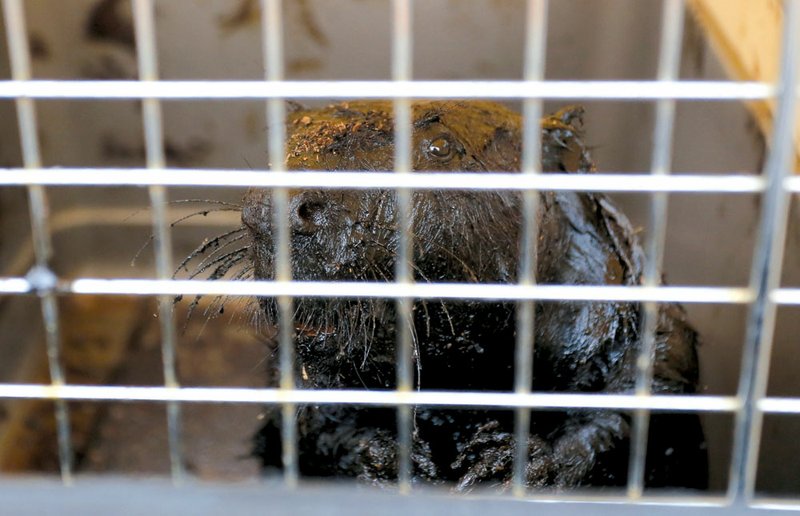Lynne Slater and her organization’s volunteers have been working to rescue oiled wildlife affected by the March 29 spill in Mayflower, but she said an Exxon official called Sunday and officially asked for help.
Slater, director and founder of HAWK (Helping Arkansas Wild “Kritters”), said now it’s a matter of getting a special certification.
“It’s specific HAZMAT training with oiled wildlife,” Slater said.
Volunteers must complete HAZWOPER certification to rescue the distressed animals.
HAZWOPER stands for Hazardous Waste Operations and Emergency Response Standard, the United States Department of Labor’s website states.
Slater said she didn’t know when training would take place, but she’s interested in getting it.
“I’m looking forward to that certification so we can help out with our animals,” Slater said.
The March 29 rupture of an underground pipeline in a Mayflower subdivision released a river of crude oil — 5,000 barrels, according to the latest estimates.
Slater took care of the oiled animals until Texas-based animal-rescue service Wildlife Response Services took over.
“Hundreds of people in our community are willing to get that certification because they want to help,” Slater said.
To receive the certification, Slater said participants will take a four-hour class describing the scenarios they will be working in, and then have an
opportunity to put those skills to work in the animal rehabilitation center where oiled wildlife is being taken.
Slater said Tuesday that she and her volunteers had recovered a dozen animals.
She said in an earlier interview in the River Valley and Ozark Edition that the oil spill underscores a need for Arkansas — specifically the HAWK Center — to have a mobile wildlife oil-response unit.
“I really think a lot more animals could have been saved,” she said.
According to an update posted Monday by the Mayflower Unified Joint
Command Center, wildlife experts released two cleaned raccoons and 10 turtles into the Bell Slough Wildlife Management Area adjacent to Mayflower, which was the first release of wildlife since the incident.
The animals were cleaned and cared for by U.S. Environmental Services and Wildlife Response Services, who are ExxonMobil contractors. The Arkansas Game and Fish Commission selected the site of the release.
Sixteen oiled ducks were being cleaned, as of Monday, and will be released in a few weeks, according to the press release.
A skunk and a beaver were set to be released this week, as well. Twenty-three ducks, a nutria and five turtles have died.
If residents find injured or oiled wildlife, they are asked to call the claims hotline at (800) 876-9291.
Staff writer Lisa Burnett can be reached at (501)244-4307 or lburnett@arkansasonline.com.
